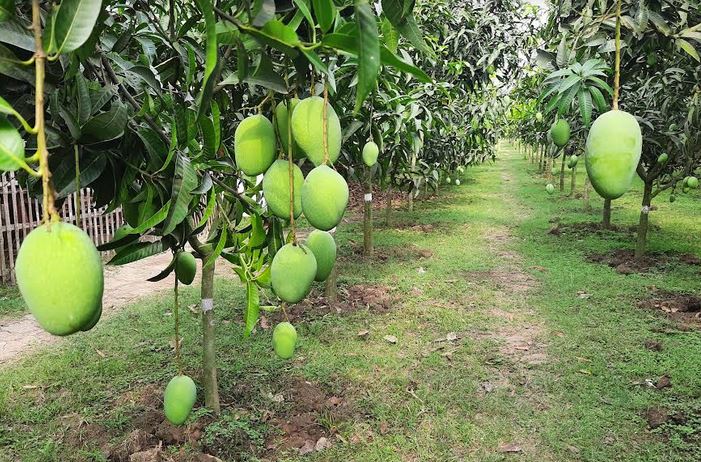
RAJSHAHI, Nov 9, 2022 (BSS)- Substantial and sustainable promotion of cost-effective irrigation can be the crucial means of mitigating the water crises in the region, particularly in the drought-prone area.
Various forms of cost-effective irrigation technologies should be promoted to reduce the gradually mounting cost for irrigation besides boosting soil productivity.
Time-fitting measures should be taken to make the farmers familiarized with water saving technologies, including drip irrigation, fertigation, Alternate Wetting and Drying (AWD) and alternate furrow irrigation in their farmlands.
Agricultural scientists and experts came up with the observation while addressing a webinar titled "Enhancing Agri Water Productivity: Lesson Learnt from Introducing Water Efficient Technologies (IWET) in Barind Tract Project" here today.
The IWET project has been developed under the Bangladesh Water Multi-Stakeholder Partnerships supported by the Coca Cola Foundation, 2030 Water Resource Group, Syngenta Foundation for Sustainable Agriculture Bangladesh and DASCOH Foundation.
Former Chief Scientific Officer of Bangladesh Rice Research Institute Dr Abdur Rashid, Mamunur Reza from Drip Irrigation Bangladesh and Principal Scientific Officers Dr Sayedur Rahman and Dr Jagadish Chandra Barman from Bangladesh Agriculture Research Institute addressed the meeting as panel discussants.
Farhad Zamil and Abdur Rouf from Syngenta Foundation for Sustainable Agriculture Bangladesh and Director of DASCOH Foundation SM Fakhrul Basher also spoke on the occasion as resource persons, while Syeda Sitwat Shahed from 2030 Water Resource Group moderated the discussion.
IWET Project Managers Forhanul Haque and Shahidul Islam illustrated the project activities and its implementation strategy.
The meeting was told that AWD method always saves 25 to 30 percent water compared to the conventional ones and the method helps save water in aquifers amidst an abnormal decline in the level of underground water in the vast Barind tract.
With intervention of the IWET scheme, 10,000 farmers, including 6,000 on Ultra High Density Mango Planting (UHDMP) and 4,000 on AWD irrigation technology were given training in Rajshahi, Chapainawabganj and Naogaon districts.
Shohidul Islam said 110 demonstration plots have, so far, been developed on 8.9 hectares of land with 15,333 trees in the project covering areas.
He said the critical components of UHDMP technology are the management of inputs related to irrigation and fertiliser and the canopy management. These two inputs are provided through drip irrigation systems. The four-year project is intended to achieve significant farm productivity in a sustainable manner by introducing efficient irrigation and other relevant technologies and management practices.